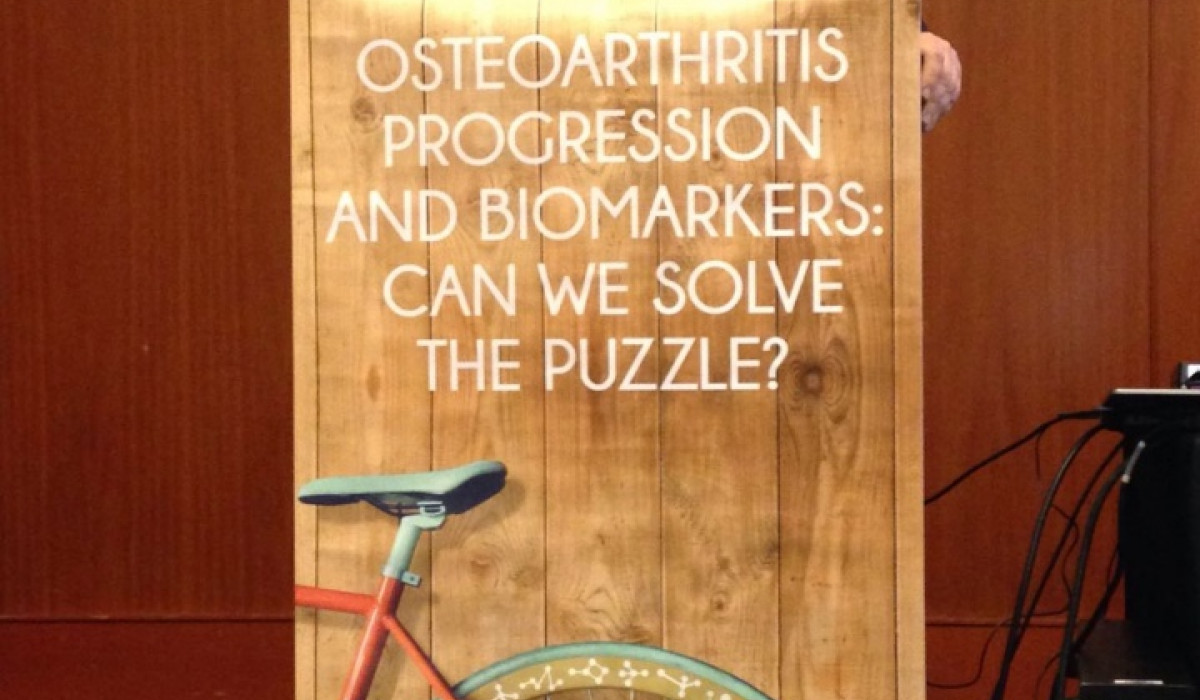Spanish researchers identify 16 proteins related to the response to osteoarthritis treatment
- These proteins are potential biomarkers that could be used to predict the best treatment for each patient
- They analyzed the differences in protein modulation between patients responding to celecoxib or to the combination of chondroitin sulfate and hydrochlorure of glucosamine, and patients not responding to these treatments.
- The results of this study have been presented at the Osteoarthritis World Congress (OARSI) and have been accepted as scientific communication accepted for presentation at the European Congress of Rheumatology (EULAR).

Not all patients respond in the same way to the osteoarthritis treatment, a fact that is causing a growing interest in biomarkers as biological markers of the efficacy of a drug.
A study carried out by Spanish scientists and presented at the Osteoarthritis Research Society International (OARSI), which was held in Amsterdam, identified 16 proteins that could be potentially useful to predict the response of a patient to a given treatment. They analyzed blood plasma samples from 80 participants of the MOVES study with the aim of finding out the differences in protein modulation between patients responding to celecoxib and to a combination of condroitin sulfate and hydrochlorure of glicosamin, and those not responding.
“We have found that celecoxib and a combination of chondroitin sulfate and hydrochlorure of glucosamin have an excellent profile as predictive biomarkers for the forecast of therapeutic response”, explained Dr. Francisco J. Blanco, rheumatologist at the Institute of Biomedical Research of A Coruña (INBIC) and main author of the study.
More precisely, they observed that the proteins associated with the response to the treatment with a combination of chondroitin sulfate and hydrochlorure of glucosamin (Alpha-1-acid glycoprotein 2, Complement C3, Inter-alpha-trypsin inhibitor, heavy chain H1, Apolipoprotein AII, Apolipoprotein A-IV, C4b-binding protein alpha chain, Beta-2-glycoprotein1) are mostly involved in metabolism.
On the other hand, proteins related with the response to the treatment with celecoxib (Histidine-rich glycoprotein, Alpha-2-HS-Glycoprotein, CD5 Antigen-like, Complement C5, Complement factor B, Alpha-1-antichymotrypsin, Sex hormone-binding globulin, Thrombospondin-1) are related with inflammation and angiogenesis.
“Protein biomarkers such as APOH or TSP1 might predict the patient’s response to an specific compound. Our next move will be to validate these results in the 606 patients participating in the MOVES study”, Dr. Blanco explained.
This study has also been accepted for presentation at the Congress of the European League Against Rheumatism (EULAR) that will be held in June in London.


